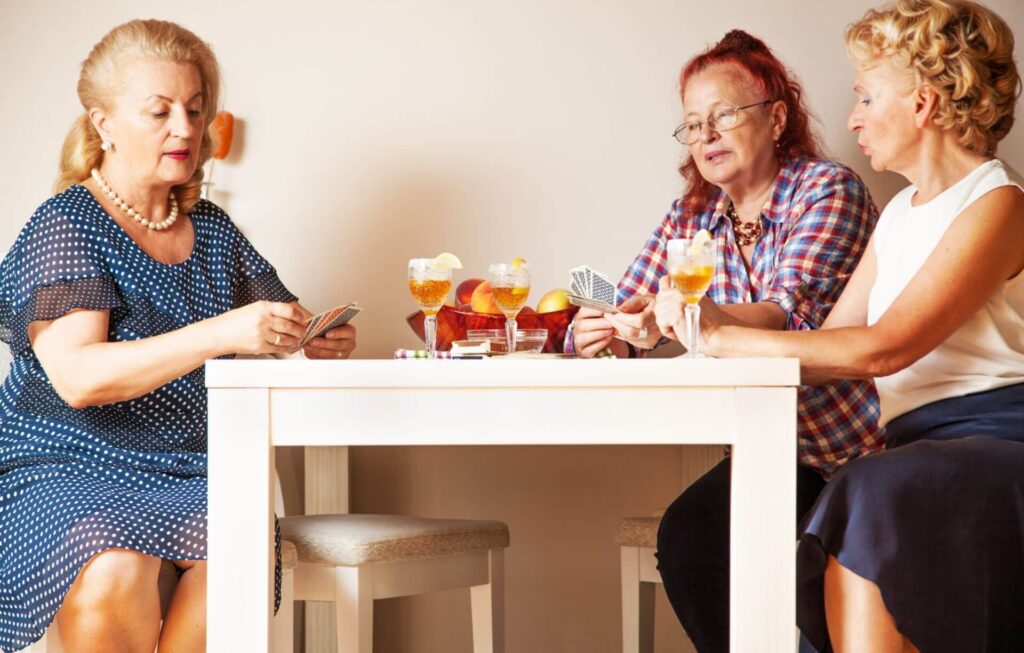Binge Drinking alcohol plays a very big role in our society. Almost everyone you encounter drinks or has drank in their lifetime. It is common to see this activity in young adults at college or later in their twenties. However, studies have shown lately that people are drinking more and more as they get older. Not only are they drinking, but they are binge drinking. This had become extremely popular with women over the age of sixty. This trend is becoming an issue. If the mass binge drinking doesn’t let up then people are going to see deterioration in their health.
What is binge drinking?
According to the CDC binge drinking is consuming 4 or more drinks for women, 5 or more drinks for men, over the course of 2 hours. This may not seem extreme but it is enough to put you over a .08 BAC. The National Institute on Alcohol Abuse and Alcoholism defines a drink as: one 12-oz. beer, one 5-oz. glass of wine, one 1.5 oz. shot of distilled spirits. While the CDC may describe binge drinking as consuming 4 or 5 drinks, more often than not, more alcohol is involved. This does not always occur every day. Even if you only binge drink on weekends it does not change the definition of the word. This is probably the most common form of binge drinking which is why it is not recognized by those who participate. National surveys say that one in six adults consumes eight or more drinks about four times a month. This substantiates the weekend theory that people like to overindulge on their day off. The scary truth is that binge drinking is responsible for the consumption of half the alcohol drank in the United States. Within the past 30 days, 92% of adults in the United States will have binge drank at least once. Whether it is just to have fun, because you’re upset and want a distraction, because you want to rebel or because you are peer pressured, this high rate is an excessive problem.
Binge drinking and alcoholism
To truly understand binge drinking you first need to understand that it does not always coincide with alcoholism. The two are not necessarily one in the same. Alcoholics can be binge drinkers and binge drinkers can be alcoholics but the two do not always coexist. Alcoholism is a dependency on alcohol; the inability or struggle to go a day without drinking. It does not mean that they consistently drink a lot at once in a high volume. This is a characteristic of a binge drinker. While binge drinking may not start out as alcoholism it definitely can lead you in that direction if it becomes a habit. Young adults or minors that binge drink earlier in life are 3 times more likely to develop alcoholism. While you may not think youth are drinking heavily, 90% of the alcohol consumed by those under the legal drinking age is in the form of binge drinking. Dr. Thomas R. Frieden of the CDC states that: “At least 80 percent of binge drinkers are not alcohol dependent. Yet binge drinking accounts for most deaths from alcohol…Alcoholism is a very insidious disease in that it can creep up on you if you’re not vigilant. So this level of binge drinking if it’s left unchecked, for a lot of people, could lead to alcoholism.”
How binge drinking affects your heath
This high rate of binge drinking can lead to many complications, especially when it comes to one’s health. You may think that this problem would only affect alcoholics who drink far more often; however, complications can arise just as easily in those that binge drink. There are those effects that are temporary like coordination impairment and bad decision making while drunk. And those that affect you the day after like dehydration, shakiness, and nausea from a hangover, and memory loss from drinking too much. The long term affects are overlooked because people assume if they don’t drink everyday these are not occurring. However, over time, issues like heart problems, liver disease, cancer, strokes, and brain damage, can be just as prevalent in binge drinkers as they are in alcoholics. We are all affected by drinking differently depending on gender, lifestyle, family history, and physical characteristics. The most sever and permanent of all physical complications that can be a result of binge drinking is death. A shocking 88,000 deaths occur as a result of alcohol consumption every year. Of these 88,000 deaths, 50% are a consequence of binge drinking. One in ten people between the ages of 20-64 die from this annually.
Binge drinking and mental well being
Health doesn’t always have to mean physical wellbeing; it can mean mental as well. Alcohol can put us in a bad state of mind. This as many of us know, or have experienced once or twice in your life, can lead to bad decision making. Most of the time these decisions are harmless like making a phone call or waking up somewhere you shouldn’t. But sometimes they can be more severe. The most common of these is driving under the influence. It seems nowadays almost everyone knows someone who has been arrested for driving under the influence. Even though people know law enforcement is cracking down they still make the decision to get behind the wheel after one to many. While binge drinking is most common among those with household incomes of 75,000 or more, they still choose to drive instead of taking a taxi. In the long run this would save more money than legal bills and the stain on your record. Driving isn’t the only bad decision, just among the most common. Another would be sleeping with someone. This can be mostly harmless if you take proper precautions but under the influence some people don’t. This can lead to pregnancy and or sexually transmitted infections. Some of these have long term effects on not only you but people around you. If you make the decision to put a roofie in someone’s drink than you are hurting both of your mental wellbeing’s. Lastly drinking is known to make people violent. You often see fights break out around this activity. People lose the ability to control their emotions and keep them in check. Sometimes this leads to minor consequences like suspicion from school or getting kicked out of bar, but there can be more serious results. Violence can lead us to do things that you can’t come back from; actions that may just land you in prison. A staggering 40% of prisoners convicted of violent crimes committed these acts under the influence of alcohol. This not only affects you but affects the people you hurt physically and even those you didn’t but are still involved with you or the victim.
The older you get the more you drink
Wait is that true? Surprisingly, binge drinking is most common in adults 26 and older. You would expect that college is the place where more drinking is observed generally. Studies show that this older group accounts for 70% of all binge occurrences. When people leave college they have been choosing to continue and further develop the drinking habits they accrued while there. A spike in drinking in American’s over the age of 60 has been observed recently as reported by CNN. Both man and women increased over the past 20 years. Men rose from 54% to 59.9%. This is a large increase. However, we saw an even bigger increase in women who rose from 37.8% to 47.5%. This is just the trend in casual drinking. The trend in binge drinking has also increased in men and women as well. Within a 17 year gap we saw men rise from 19.9% to 22.5%. The fact that we see this many people binge drinking over the age of 60 is startling. While this may seem surprising, what will shock you even more is the increase in binge drinking in women over the age of 60.
Women over the age of 60: The new “it” group
This high occurrence of binge drinking is becoming more and more common in women over the age of 60. A new study conducted by the National Institute of Alcohol Abuse and Alcoholism shows that an astonishing 7.5% of women over the age of 60 confess to binge drinking. The study, conducted over a 17 year period, surveyed the drinking habits 145,000 men and women. While men stayed fairly consistent in their drinking habits, binge drinking in women increased by almost 4 percent. What is the causing this sudden increase? Many blame it on a lifestyle that just hasn’t changed over time. The baby boomer era started this binge drinking at a young age. Women who were once supposed to be seen as perfect role models gained the freedom to be judged a little less. It is possible that they just never evolved the habits they participated in at a younger age. Another probable reason is boredom. Most people retire around the age of 60 or so. If they don’t have outside interests or hobbies, this opens a huge time gap. It is possible they choose to fill it with binge drinking. While not a very productive use of time, it does the job.
What is the causing this sudden increase? Many blame it on a lifestyle that just hasn’t changed over time. The baby boomer era started this binge drinking at a young age. Women who were once supposed to be seen as perfect role models gained the freedom to be judged a little less. It is possible that they just never evolved the habits they participated in at a younger age. Another probable reason is boredom. Most people retire around the age of 60 or so. If they don’t have outside interests or hobbies, this opens a huge time gap. It is possible they choose to fill it with binge drinking. While not a very productive use of time, it does the job.
So what can we do?
The problem with binge drinking once a week is that there is no recognition that it is an actual problem. People look at this as normal. In reality it is detrimental to our health. Everyone has occasionally overindulged from time to time but the consistency in which binge drinking is occurring is a scary reality. Once we get out of college and get a job and start a family, what is thought of as “being an adult;” we need to start taking our health more seriously as well. That is the next step in being an adult. Instead of binge drinking once a week, start limiting yourself to once every two weeks, then maybe once a month. You can still treat yourself to a glass of wine or a beer, but there is a difference between casual drinking and binge drinking. Try to pick up a new hobby to distract yourself and kill free time. If you recognize someone around you has this problem reach out and help in any way you can. Be gentle in your approach. This may be through offering some emotional support or pointing them in the direction of a professional that may be able to assist. There are medications you can take to curb cravings as well. As with any medication, make sure you speak with a doctor before taking anything.

